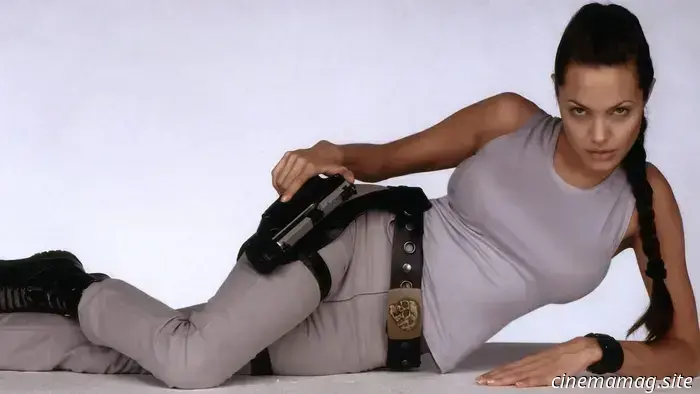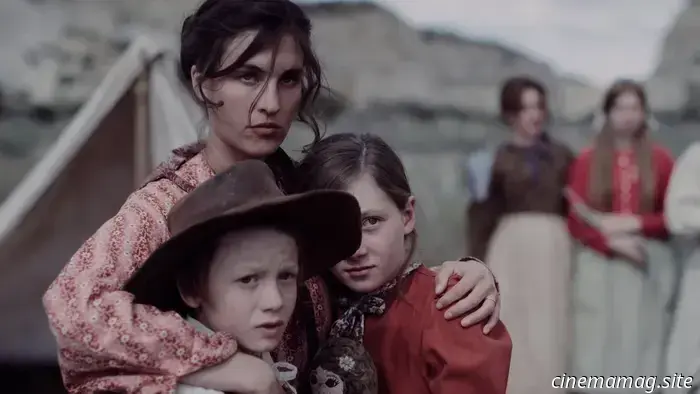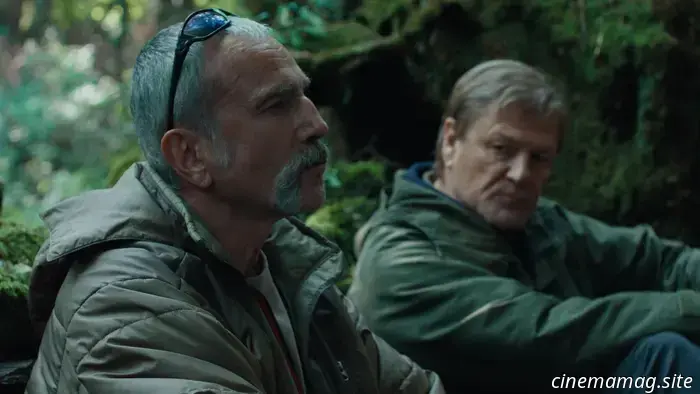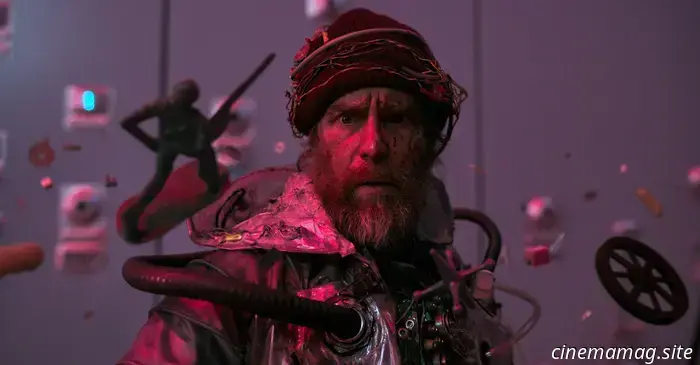
Tips for Actors on Self-Taping: Stay Calm and Utilize Apps
At the El Paso Film Festival, four successful actors — Jessica Meraz, Walter Perez, Emilio Garcia-Sanchez, and Eller Coltrane — came together to offer insights to aspiring actors, with a key piece of advice being to relax.
Among the group, only Meraz resides in Los Angeles. However, even in this entertainment capital, self-taping has emerged as a standard practice for auditions since the onset of Covid. This self-taping process can be a stressful and naturally isolating experience. Therefore, the actors suggested taking a step back — because projecting an attitude of not desperately needing a job, even if you truly desire one, can convey confidence in your performance.
Perez, a seasoned actor with two decades of experience who relocated from Los Angeles to El Paso, recently secured prominent roles in NBC’s Quantum Leap and Paramount+’s Fatal Attraction through self-tapes. He believes that casting directors appreciated the authenticity of his auditions, and he took multiple takes to allow himself to be relaxed.
“Sometimes that ‘I don’t give a f— about this’ attitude alleviates the pressure you place on yourself,” he remarked.
“It reflects on our industry that when you exude a ‘I don’t care!’ vibe, they think, ‘Here’s someone who could care less. Let’s work with him,’” added Garcia-Sanchez, an actor from the Bay Area known for his recent appearances in Netflix’s The Society, Disney+’s Star Wars: The Bad Batch, and the upcoming HBO Max series I LOVE LA. “That’s just human nature, isn’t it?” remarked Meraz, an El Paso native with roles in TNT’s Major Crimes and The CW’s Supergirl. “People are drawn to someone who, regardless of whether they get booked or not, will be just fine, similar to a romantic partner.”
Coltrane typically collaborates with friends, having starred in the Best Picture nominee Boyhood, where director Richard Linklater captured his growth over 12 years. Coltrane found the attention from the press surrounding that role overwhelming, and now frequently teams up with filmmakers in El Paso, close to the New Mexico border.
Ellar, who is also a poet and artist, resides in southern New Mexico, away from Hollywood pressures. Their recent work includes Zach Passero’s animated film, The Weird Kidz, and Carlos M. De La Torre’s short film, “So, Who Was It This Time?”
Despite Garcia-Sanchez's appearances in significant productions, he lives affordably in a repurposed cookie factory in the Bay Area, allowing him the financial flexibility to avoid roles that don’t feel right.
Living outside of Hollywood is not seen as a drawback: Perez and Garcia-Sanchez noted that Los Angeles is just a short flight away for meetings or shoots when necessary.
During the panel, the actors delved into their craft when a young actor in the audience sought advice on self-taping.
In live auditions, productions provide someone to read alongside the actor, allowing them to focus solely on their line delivery. In contrast, solo taped auditions place the burden on the actor to find someone to read with them or to record the other character’s lines separately, adding complexity to an already daunting process.
This is not trivial: asking a friend who isn’t an actor to read lines might lead to overacting or misplaced emphasis, which can disrupt the entire performance. Similarly, if an actor record their own lines beforehand or afterward, they must pay extra attention to timing.
(If you think it's simple to read lines with emotion while leaving space for later dubbing, give it a try.)
Perez has a simple yet effective solution: he writes the other character’s lines on a whiteboard behind the camera and silently reads them before delivering his own lines.
Meraz often films self-auditions after the challenge of getting her young child to nap (which is no easy task).
“I’ve tried recording my own lines, and I would not recommend it, as it takes away the element of spontaneity,” she advised. “Have a roster of people ready, and enlist your mom if necessary.”
Sometimes this approach works well — for instance, actress Mia Threapleton secured a leading role in Wes Anderson’s The Phoenician Scheme after self-taping with her mom’s assistance.
However, her mother is Kate Winslet. If yours isn’t as skilled at running lines as Kate Winslet, there are other options.
Meraz often relies on a friend from Las Cruces who reads lines for her via FaceTime during her recordings. She also suggests using apps like We Audition, which connect you with scene partners from around the globe. (For example, if you need a scene partner with a London accent, you can hire someone based in London.) The app describes itself as “Uber for self-tape readers.”
“They charge a minimal fee, and you can see who’s available at the time,” explained Meraz. “
Other articles
 The 11 Greatest Films Inspired by Video Games
Here are the 12 greatest films inspired by video games.
The 11 Greatest Films Inspired by Video Games
Here are the 12 greatest films inspired by video games.
 Trailer for the western drama "This Bloody Country," featuring Rainey Qualley.
In anticipation of its digital launch this October, a poster and trailer for writer-director Craig Packard's western drama, This Bloody Country, have been unveiled online. The film tells the story of a Mormon family as they…
Trailer for the western drama "This Bloody Country," featuring Rainey Qualley.
In anticipation of its digital launch this October, a poster and trailer for writer-director Craig Packard's western drama, This Bloody Country, have been unveiled online. The film tells the story of a Mormon family as they…
 NYFF Review: Anemone Signifies a Promising Debut and an Engaging Comeback for Daniel Day-Lewis
When Daniel Day-Lewis first appears in Anemone, he is shrouded in darkness, seated within a tiny cabin situated in the North England wilderness. This introduction is nearly incomprehensible, seemingly intentional—a gentle, shadowy reentry for his surprising and appreciated comeback to film. In 2017, just prior to the press tour
NYFF Review: Anemone Signifies a Promising Debut and an Engaging Comeback for Daniel Day-Lewis
When Daniel Day-Lewis first appears in Anemone, he is shrouded in darkness, seated within a tiny cabin situated in the North England wilderness. This introduction is nearly incomprehensible, seemingly intentional—a gentle, shadowy reentry for his surprising and appreciated comeback to film. In 2017, just prior to the press tour
 Good Luck, Have Fun, Don’t Die Review: Gore Verbinski Makes a Comeback with an Excitingly Whimsical Adventure
I hadn’t fully appreciated how much I missed Gore Verbinski until I found myself in the theater watching the utterly wild final act of his newest film, Good Luck, Have Fun, Don't Die, during the last secret screening at this year’s Fantastic Fest in Austin, Texas. I won’t reveal the specifics of how crazily intense this movie gets.
Good Luck, Have Fun, Don’t Die Review: Gore Verbinski Makes a Comeback with an Excitingly Whimsical Adventure
I hadn’t fully appreciated how much I missed Gore Verbinski until I found myself in the theater watching the utterly wild final act of his newest film, Good Luck, Have Fun, Don't Die, during the last secret screening at this year’s Fantastic Fest in Austin, Texas. I won’t reveal the specifics of how crazily intense this movie gets.
 Allison Janney and Bradley Whitford have been promoted to series regulars for the fourth season of The Diplomat.
In anticipation of the upcoming third season premiere of The Diplomat on Netflix in a few weeks, the streaming platform has announced that viewers will see more of Allison Janney and Bradley Whitford in the fourth season of the show.
Allison Janney and Bradley Whitford have been promoted to series regulars for the fourth season of The Diplomat.
In anticipation of the upcoming third season premiere of The Diplomat on Netflix in a few weeks, the streaming platform has announced that viewers will see more of Allison Janney and Bradley Whitford in the fourth season of the show.
Tips for Actors on Self-Taping: Stay Calm and Utilize Apps
Tips for actors on self-taping from Jessica Meraz, Walter Perez, Emilio Garcia-Sanchez, and Eller Coltrane during the El Paso Film Festival.
